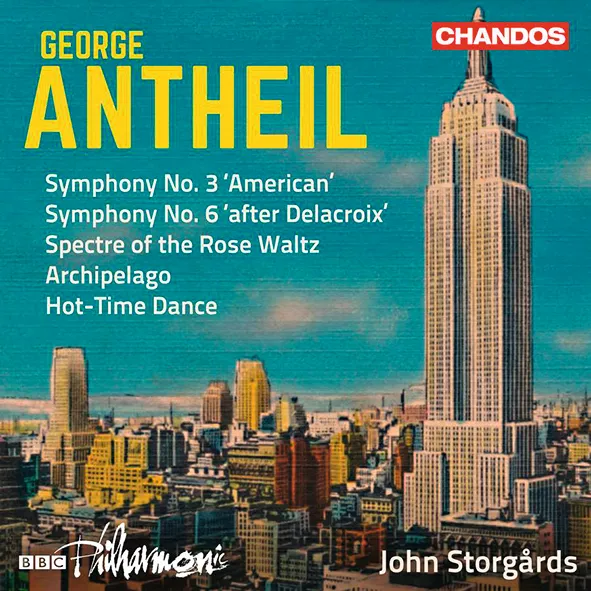
Antheil Symphony No. 3 (American); Symphony No. 6 (After Delacroix); Spectre of the Rose Waltz; Archipelago; Hot-Time Dance BBC Philharmonic/John Storgårds Chandos CHAN 10982 66:52 mins
In the 1920s George Antheil may have been America’s self-declared ‘bad boy of music’, but thereafter, up to a certain point, he tried to behave. The hammering composer of Ballet mécanique pored over scores of the symphonic literature, though without absorbing much sense of conventional symphonic form. In this second volume of Chandos’s survey of the orchestral Antheil, both symphonies, finished in the 1940s, are fidgety, episodic creations of bustling Americana. They are equally greatly enjoyable, partly because you never know where Antheil’s tendency to pastiche or borrow will take him next. Sibelius? Mahler? Prokofiev? Shostakovich? One of Antheil’s own film scores? The echoes and quotes never end.
Music like this, often rampagingly orchestrated, needs performances of matching gusto. The symphonies’ pioneer German recordings, now almost 20 years old, had plenty of spirit, but the superior Chandos sound and the BBC Philharmonic’s finesse supply just that extra kick needed. Among much turmoil, the Sixth’s gently winding slow movement, lightly peppered with touches of Prokofiev, exerts a strong appeal, as does its Mahler-esque equivalent in the Third – a symphonic tour of America held together much more by luck and John Storgårds’s skill than by Antheil’s judgement. Of the smaller items, the Specter waltz is darkly appealing, Archipelago is musically malnourished but sparklingly played, while the material of Hot-Time Dance isn’t really hot enough. None of the composer’s deficiencies, though, will prevent me looking forward to the next volume in Chandos’s Antheil series. These days we need every bit of fun we can get.
Geoff Brown